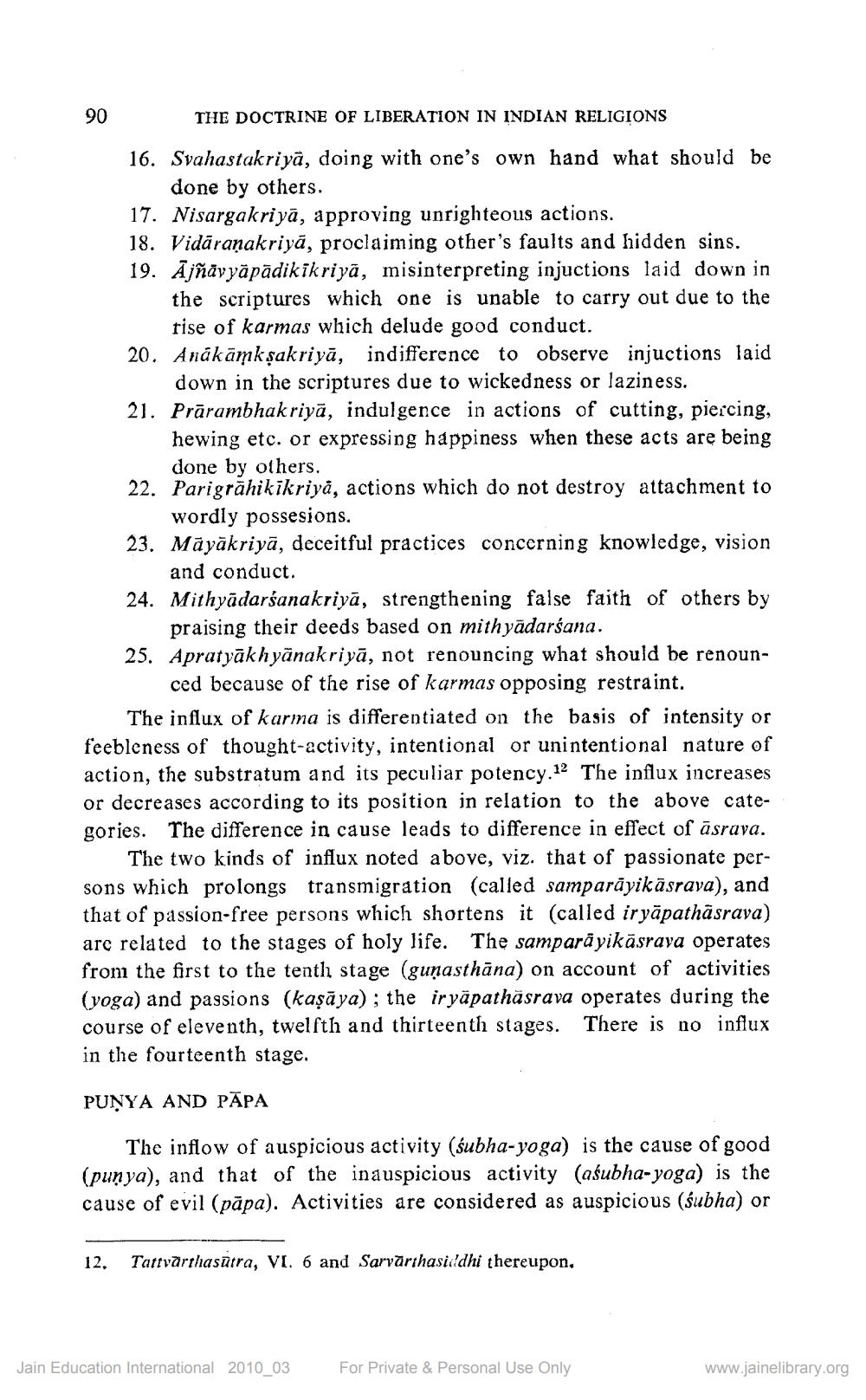________________
90
THE DOCTRINE OF LIBERATION IN INDIAN RELIGIONS
16. Svahastakriyā, doing with one's own hand what should be
done by others. 17. Nisargakriyā, approving unrighteous actions. 18. Vidāranakriyā, proclaiming other's faults and hidden sins. 19. Ājñāvyāpādikikriyā, misinterpreting injuctions laid down in
the scriptures which one is unable to carry out due to the
rise of karmas which delude good conduct. 20. Anákāmkşakriyā, indifference to observe injuctions laid
down in the scriptures due to wickedness or laziness. 21. Prārambhakriyā, indulgence in actions of cutting, piercing,
hewing etc. or expressing happiness when these acts are being
done by others. 22. Parigrāhikikriya, actions which do not destroy attachment to
wordly possesions. 23. Māyākriyā, deceitful practices concerning knowledge, vision
and conduct. 24. Mithyādarśanakriyā, strengthening false faith of others by
praising their deeds based on mith yādarśana. 25. Apratyākhyānakriyā, not renouncing what should be renoun
ced because of the rise of karmas opposing restraint. The influx of karma is differentiated on the basis of intensity or feebleness of thought-activity, intentional or unintentional nature of action, the substratum and its peculiar potency.12 The influx increases or decreases according to its position in relation to the above categories. The difference in cause leads to difference in effect of asrava.
The two kinds of influx noted above, viz. that of passionate persons which prolongs transmigration (called samparāyikāsrava), and that of passion-free persons which shortens it (called iryāpathäsrava) are related to the stages of holy life. The samparāyikāsraya operates from the first to the tenth stage (gunasthāna) on account of activities (yoga) and passions (kaşāya); the ir yāpathäsrava operates during the course of eleventh, twelfth and thirteenth stages. There is no influx in the fourteenth stage.
PUNYA AND PAPA
The inflow of auspicious activity (śubha-yoga) is the cause of good (punya), and that of the inauspicious activity (aśubha-yoga) is the cause of evil (pāpa). Activities are considered as auspicious (śubha) or
12.
Tattvärthasūtra, VI. 6 and Sarvārthasii!dhi thereupon,
Jain Education International 2010_03
For Private & Personal Use Only
www.jainelibrary.org




